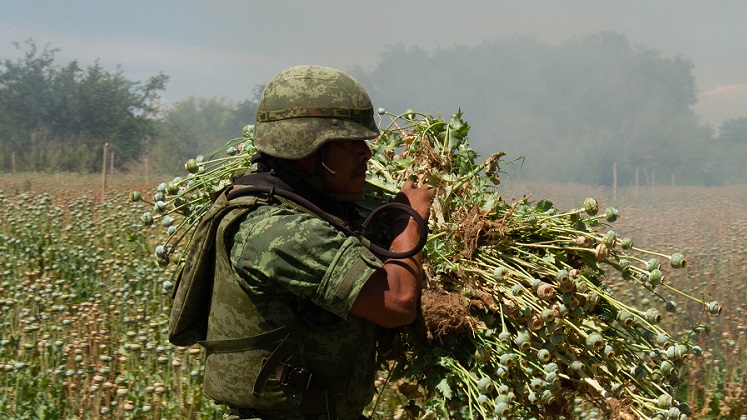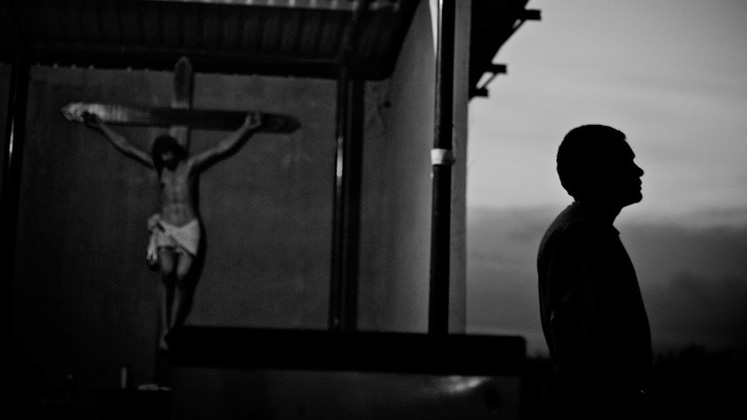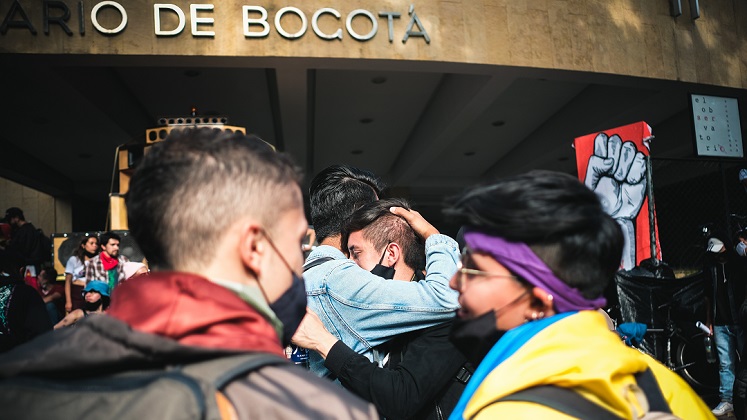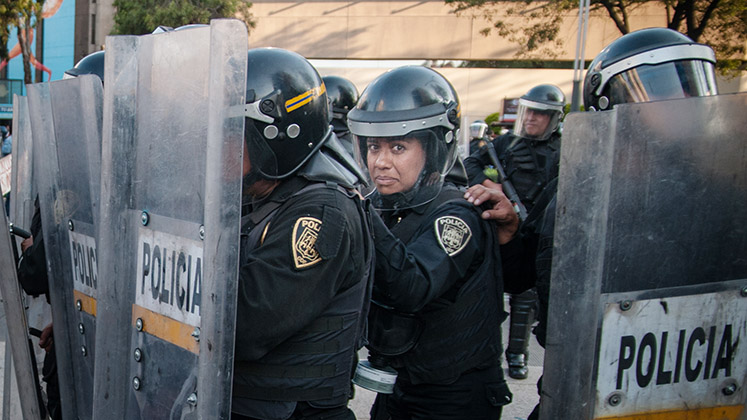Honduras’ geographic location makes it an ideal transit hub for drug trafficking towards the United States. And the relationships between criminals and public actors in all the steps of the smuggling are evident, as multiple documents reveal and Emilia Ziosi (University of Milan) analysed for the LSE’s Journal of Illicit Economies and Development.
Despite being a transit hub for cocaine and its chemical precursors since the 1970s, Honduras has emerged as a focal point for drug trafficking in the Americas in the last two decades. Direct cocaine flows to Honduras started rising especially after the 2009 coup d’état that brought down ex-President Manuel Zelaya (2006-2009).
The political instability created by the coup, coupled with the suspension of US counternarcotics assistance and the diversion of national resources to the maintenance of order and stability in the country, contributed to a drastic rise in direct cocaine-loaded flights from Colombia and Venezuela. However, there are other factors that explain this growth. The country’s geographic location, in between producer nations in South America, and the United States, one of the main destination countries for cocaine trafficking, makes it an ideal transit hub.
On top of this, important shifts in the global supply chain of cocaine as a result of suppression initiatives of the US war on drugs, a phenomenon known as ‘the balloon effect’, caused the disruption of trafficking routes in the Caribbean and simply moved transit routes to Mexico and Central America. This, coupled with internal factors such as weak capacity among law enforcement institutions and high levels of impunity and corruption, have contributed to Honduras’ growing importance as a major transit country for drug trafficking. By 2013, approximately 87% of all cocaine smuggling flights leaving South America were first stopping in Honduras.
The country has gained considerable international attention recently, with the passing of the extradition law between Honduras and the US in 2012 for matters of drug trafficking and terrorism. Several Honduran politicians, law enforcement officers and businessmen have been charged – and in some cases, sentenced – in the US for their connections with local transportista groups, small family-based criminal groups present in Central America who are in charge of storing and transporting drugs from one side to another of the country. This happened especially after the leaders of one of the most powerful Honduran transportista groups, the Cachiros, decided to turn themselves in in the US and started collaborating with the DEA (Drug Enforcement Administration) out of fear of being murdered by their rivals.
The Cachiros case in Honduras
Most of the US official judicial documents concerning Honduran state actors’ alleged links with the Cachiros are available for public consultation on the United States Department of Justice website, as well as on online sources such as the InSight Crime foundation, El Heraldo, Docketbird, and Scribd. The documents reveal the extent to which the Cachiros were allegedly working side by side with politicians and law enforcement officials to receive large loads of cocaine and transport them westwards towards the border with Guatemala, and eventually to the US on behalf of Mexican drug traffickers. These documents are also an exceptional resource to elucidate Honduran politicians, businessmen and law enforcement officers’ alleged involvement and active and/or passive role within the trade.
The court evidence that incriminates some members of the Honduran National Police, for example, show that the Cachiros were relying extensively on the help of public officials to gain protection. Public officials allegedly provided the transportista group with information about ongoing investigations, military and law enforcement checkpoints, and planned narcotics interdictions. In many instances, they were also allegedly actively participating in smuggling the commodity, transporting it, or escorting the large trucks used by the Cachiros to move the drugs within the country with security vehicles. On top of this, the Cachiros were also relying on the help of prominent Honduran figures to protect their illicit activities, proceeds, and lives.
In his testimony during the USA v. Lobo hearing (2017), Devis Leonel Rivera Maradiaga, one of the leaders of the Cachiros, claimed that the now-sentenced Fabio Lobo, son of the country’s former president Porfirio Lobo (2010-2014), was using his political access to protect the drug traffickers from prosecution and extradition, allegedly preventing interference with the drug trafficking operations while also assisting drug traffickers in recovering their seized assets.
These tight relationships also encompassed money laundering activities. The Cachiros were the owners of numerous legitimate companies, many of which were used – or simply set up – to launder their illicit proceeds with the help of prominent Honduran businessmen and politicians. The court documents show that the drug trafficking organisation was paying regular bribes to Honduran state actors and businessmen who in exchange were allegedly facilitating the transportista group’s money laundering operations by supporting their front companies, often through the issuance of government contracts.
What’s different about the Cachiros case?
These examples show the extent to which the Cachiros were able to establish strong and long-lasting ties with public actors that went beyond single cases of bribery, effectively blurring the lines between the licit and illicit in the country. But they also bring a better understanding of the relationships between criminal groups and state actors from an innovative perspective. Until now, state-crime relationships have only been studied as national issues, and not between states. However, due to the transnational nature of drug trafficking, and the increasing interdependencies among different nations in the era of globalisation, such links also have an impact on other states. The Cachiros case shows that drug trafficking and money laundering affect Honduras, but the connections go further with other external actors in the US. The case illustrates the importance of gaining a comprehensive understanding of country-state crime relationships to have a wider global perspective.
In the Cachiros case, the US is seen by both the Honduran state and criminal actors as one, if not the main, legitimate authority from which they must evade enforcement; something achieved by bribing Honduran state actors to obtain protection. By recognising this antithetical relationship, we could shed light on the transnational relationships between state(s) and criminal actors that cross the country’s borders and consider the role of external states in a country’s criminal landscape and dynamics.
Besides reflecting the Honduran state’s limited capacity to carry out state functions, the outsourcing of judicial proceedings to the US also demonstrates the exceptional influence that the country has in Honduras, which stands as the basis of today’s power dynamics between both nations. Described as a ‘captive nation’ since the beginning of the twentieth century, Honduras has remained under the rigid political and economic control of the US throughout the centuries. The country has a long history as an enclave economy dominated by multiple US-owned companies and has been deployed as a lynchpin for US policy in Central America during the US-led raids directed against the leftist regimes in neighbouring countries in the 1980s.
Considering the role of the United States in the Honduran state-crime relationship is thus crucial to shed light on the US’ responsibility in drug trafficking and corruption cases in Honduras. It is rooted in the long history of US political, economic, and military intervention in Central America, and in the longstanding and asymmetrical relationship between the countries. Case study results are hardly universally applicable, but embracing a transnational perspective in understanding state-crime relationships can help to elucidate the role of other states in a country’s violence, corruption and insecurity dynamics. This could also be a good opportunity to consider US-Western and colonial relations as ongoing weights within state-crime collaborative relationships; and lastly to suggest new adjustments to drug policies at an international scale, treating the issue as a shared problem.
Notes:
• The views expressed here are of the author rather than the Centre or the LSE
• Please read our Comments Policy before commenting
• This post is based on the article Enablers of Cocaine Trafficking: Evidence of the State-Crime Nexus from Contemporary Honduras for the LSE’s Journal of Illicit Economies and Development.
• Banner image: A vessel from the Honduran Coast Guard sails in the sea / Navy Medicine (public domain)





